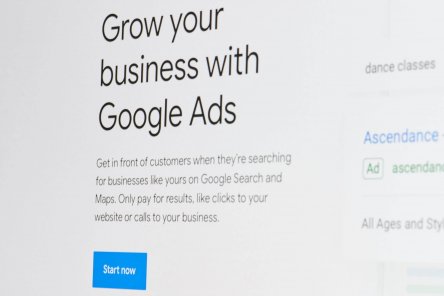Tips for Maintaining Top-Performing Recruitment PPC Ads
One distinct advantage of using pay-per-click (PPC) ads to obtain leads for your recruitment company is that it allows you to expand your reach despite having a limited budget. With PPC ads, you can go neck-and-neck against more prominent recruitment agencies with massive marketing budgets. As long as you’re using the right strategies, you’ll be able to achieve your marketing goals regardless of how much money you allocate for your firm’s marketing efforts.
But what if your PPC campaigns suddenly stop producing substantial results? What if you’re not getting the same number of leads as you did before? If this is happening to you, don’t fret. With the help of PPC experts and by using specific strategies, you can prevent your PPC ads from hitting a plateau.
Contents
How to Ensure an Upward Trend for Your PPC Campaign
Take a look at these pointers to help you improve your recruitment PPC ads‘ performance and ensure its upward movement.
1. Incorporate “negative keywords” in your campaign
Negative keywords are keywords that you can omit from your campaign to prevent your ads from showing up unnecessarily on Google. When a user types in a negative keyword into the search bar, your ads won’t appear on the search result page.
Adding negative keywords to your campaign can help you minimise expenses. At the same time, it helps increase your click-through rate by allowing you to avoid users who are searching for services that are similar to yours, but you don’t necessarily offer.
2. Keep track of your conversions
To ensure that your PPC campaign is on the right track, make sure that you monitor its performance. Make sure to pay attention to the keywords, audiences, and ad placements that are helping you generate conversions. By doing so, you can determine where you should focus your attention and identify specific parts of your campaign that need improvement.
Using Google’s ValueTrack parameters can help you in this regard. ValueTrack allows you to monitor information within URLs when visitors make conversions. In particular, it enables you to identify the landing page where a conversion occurred, the location of the visitor who made the conversion, and the keywords that triggered your ads. Having access to these valuable data can help you create better strategies. Also, it gives you more confidence if you want to be more aggressive when bidding on specific keywords, audiences, or ad placements.
3. Determine the PPC channels your prospects are using
There are four types of ads or PPC channels that you can use to run your campaign. They are:
- Display ads
Display ads are banner ads that show up anywhere within Google’s ecosystem, including Gmail, YouTube, and other parts of the search giant’s Display Network.
- Search ads
Search ads are the ads that you most likely associate with PPC campaigns. They appear as hyperlink search results on Google when users utilise your target keywords to look up specific information online.
- App ads
App ads are ads that show up on applications to promote specific apps on Google Play.
- Video ads
Appearing mainly on YouTube and Google’s other affiliate platforms, video ads show up before, during, or after a video with the same type of audience that you’re targeting.
Depending on the PPC channel they used to reach your landing page, each prospect has a different level of conversion/buyer intent. For instance, prospects who arrived on your landing page by clicking on your display ads are usually less likely to convert. Conversely, those who clicked on your search ads have bigger chances of taking your desired conversion action.
You should track the type of ads you’re using, especially if you’re utilising multiple PPC channels to attract candidates and potential clients. The information you can glean from this can help you craft better calls to action (CTA). Always remember that simple tweaks to your CTAs can go a long way towards improving your conversion rates.
4. Break down significant PPC conversions into bite-size pieces
When it comes to recruitment PPC ads, paying attention to the smallest details can give you a competitive advantage. As such, you should consider breaking down significant conversions into much smaller ones by using micro PPC conversions. This strategy allows you to quickly identify the parts of your campaign that are preventing you from converting leads into candidates or clients.
For example, let’s suppose that you have launched a new Google Ads campaign. However, for some reason, you have yet to generate your first conversion. If you knew that, for instance, your prospects are spending a long time viewing your site or landing page, then you’d be sure that the problem lies with your ad targeting. Instead of adjusting the ad itself or the landing page, you’ll improve your audience targeting strategy right away.
By breaking down large conversions into smaller ones, it will be much easier for you to determine where exactly the problem lies within your PPC campaign. This allows you to immediately make the necessary adjustments to keep your ads on the right track.
Monitoring is Key
Similar to other digital marketing strategies, PPC ads require constant monitoring. You need to keep a close eye on the performance of your campaign so you’ll know when to make the necessary improvements. By monitoring your PPC ads and making the necessary adjustments along the way, you can prevent their performance from hitting a plateau.
At Recruitment Traffic, we can help you create a PPC campaign that allows you to obtain more leads for your recruitment business. Because we know you already have a lot on your plate, we’ll also monitor your ads and make the necessary adjustments, so you don’t have to. Speak with us today to get started.
Drive Your Recruitment Business Towards The Best Results.
Talk to us about how we can help.






